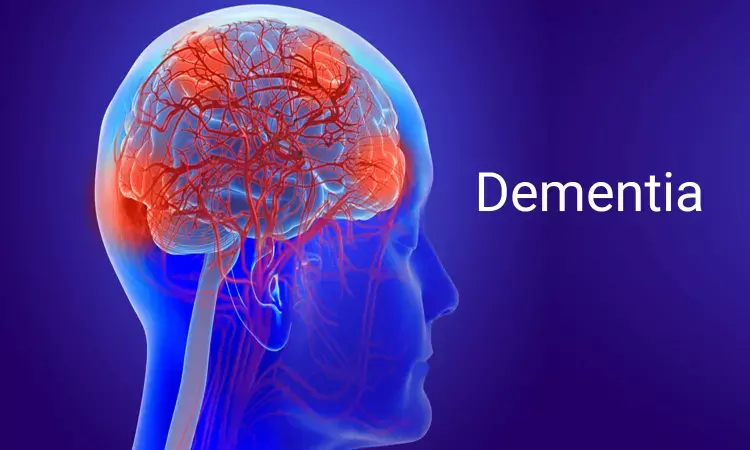- Home
- Medical news & Guidelines
- Anesthesiology
- Cardiology and CTVS
- Critical Care
- Dentistry
- Dermatology
- Diabetes and Endocrinology
- ENT
- Gastroenterology
- Medicine
- Nephrology
- Neurology
- Obstretics-Gynaecology
- Oncology
- Ophthalmology
- Orthopaedics
- Pediatrics-Neonatology
- Psychiatry
- Pulmonology
- Radiology
- Surgery
- Urology
- Laboratory Medicine
- Diet
- Nursing
- Paramedical
- Physiotherapy
- Health news
- Fact Check
- Bone Health Fact Check
- Brain Health Fact Check
- Cancer Related Fact Check
- Child Care Fact Check
- Dental and oral health fact check
- Diabetes and metabolic health fact check
- Diet and Nutrition Fact Check
- Eye and ENT Care Fact Check
- Fitness fact check
- Gut health fact check
- Heart health fact check
- Kidney health fact check
- Medical education fact check
- Men's health fact check
- Respiratory fact check
- Skin and hair care fact check
- Vaccine and Immunization fact check
- Women's health fact check
- AYUSH
- State News
- Andaman and Nicobar Islands
- Andhra Pradesh
- Arunachal Pradesh
- Assam
- Bihar
- Chandigarh
- Chattisgarh
- Dadra and Nagar Haveli
- Daman and Diu
- Delhi
- Goa
- Gujarat
- Haryana
- Himachal Pradesh
- Jammu & Kashmir
- Jharkhand
- Karnataka
- Kerala
- Ladakh
- Lakshadweep
- Madhya Pradesh
- Maharashtra
- Manipur
- Meghalaya
- Mizoram
- Nagaland
- Odisha
- Puducherry
- Punjab
- Rajasthan
- Sikkim
- Tamil Nadu
- Telangana
- Tripura
- Uttar Pradesh
- Uttrakhand
- West Bengal
- Medical Education
- Industry
Pimavanserin linked to sustained benefit in dementia-related psychosis: NEJM

The atypical antipsychotic pimavanserin reduced the risk of dementia-related psychosis relapse, finds phase III HARMONY trial published in New England journal of Medicine.
There is strong evidence of the sustained benefits of investigational antipsychotic treatment for people with dementia-related psychosis.
Up to half of the 45 million people worldwide who are living with Alzheimer's disease will experience psychotic episodes, a figure that is even higher in some other forms of dementia. Psychosis is linked to a faster deterioration in dementia.
Despite this, there is no approved safe and effective treatment for these particularly distressing symptoms. In people with dementia, widely-used antipsychotics lead to sedation, falls and increased risk of deaths.
Pimavanserin works by blocking serotonin 5HT2A receptors, and doesn't interact with the dopamine receptors. It is licensed in the US to treat hallucinations and delusions in people with Parkinson's disease psychosis.
A new paper published in the New England Journal of Medicine outlines a clinical trial, conducted in 392 people with psychosis associated with Alzheimer's disease, Parkinson's disease, Lewy body, frontotemporal, or vascular dementia. All participants were given pimavanserin for 12 weeks. Those who met a threshold of symptom improvement were then assigned to pimavanserin or placebo for up to 26 weeks.
The trial was stopped early for positive efficacy results. Of the 351 participants, 217 (61.8%) had a sustained initial treatment benefit, of whom 112 were assigned to placebo and 105 to pimavanserin. Relapse occurred in 28/99 (28.3%) of the placebo group, compared to 12/95 (12.6%) of the pimvanserin group, with pimvanserin more than halving the relapse rate and significantly improving the sustained benefit.
Professor Clive Ballard, Executive Dean of the University of Exeter Medical School, said: "Psychosis affects up to half of all people with dementia, and it's a particularly distressing symptom - yet there's currently no safe and effective treatment. Currently used antipsychotics are known to cause harms, and best practice guidelines recommend prescribing for no longer than 12 weeks for people with dementia as a result. We urgently need alternatives. It's exciting that the relapse rate in the pimavanserin group was lower than the placebo group, indicating that the treatment benefits may be sustained over time. We now need longer and larger scale trials to explore this further."
The trial found headache, urinary tract infection and constipation occurred more frequently in the pimavanserin group, but there was no increase in mortality or the other serious events, such as stroke, which are known to increase with other antipsychotics.
Dr Kamal Kant Kohli-MBBS, DTCD- a chest specialist with more than 30 years of practice and a flair for writing clinical articles, Dr Kamal Kant Kohli joined Medical Dialogues as a Chief Editor of Medical News. Besides writing articles, as an editor, he proofreads and verifies all the medical content published on Medical Dialogues including those coming from journals, studies,medical conferences,guidelines etc. Email: drkohli@medicaldialogues.in. Contact no. 011-43720751


